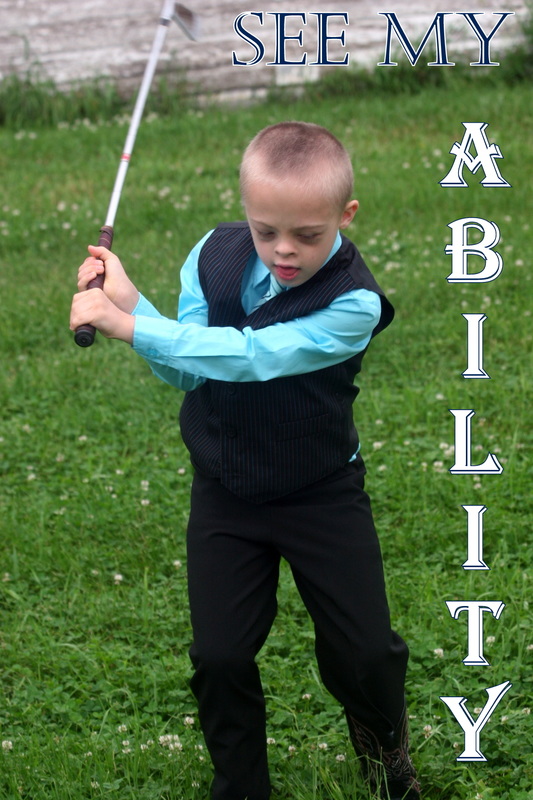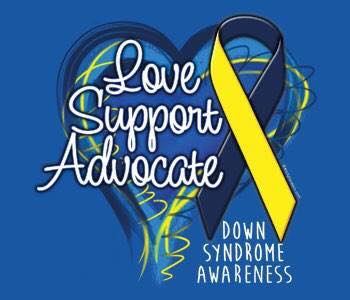Down Syndrome Advocates in Action
Myths and Facts About Down SyndromeThe most important fact to remember about Down syndrome, is that individuals who were born with Down syndrome are more like the general population, than they are different.
MythsMYTH: Down syndrome is a rare disorder.
TRUTH: Down syndrome is the most commonly occurring chromosomal condition. One in every 691 babies in the United States is born with Down syndrome, or around 6,000 births per year. Today, there approximately 400,000 people with Down syndrome living in the United States. MYTH: Down syndrome is hereditary and runs in families. TRUTH: Translocation, a type of Down syndrome that accounts for 3 to 4% of all cases, is the only type of Down syndrome known to have a hereditary component. Of those, one third (or 1% of all cases of Down syndrome) are hereditary. MYTH: Most children with Down syndrome are born to older parents. TRUTH: Most children with Down syndrome are born to women younger than 35 years old simply because younger women have more children. However, the likelihood of having a child with Down syndrome increases with the age of the mother, especially after age 35. MYTH: Parents will not find community support in bringing up their child with Down syndrome. TRUTH: In almost every community of the United States there are parent support groups and other community organizations directly involved in providing services to families of individuals with Down syndrome. You can find a list of groups at http://www.ndss.org/Resources/Local-Support. MYTH: All people with Down syndrome have a severe cognitive disability. TRUTH: Most people with Down syndrome have a mild to moderate cognitive disability, or intellectual disability. This is not indicative of the many strengths and talents that each individual possesses. Be considerate of the extra time it might take a person who has a disability to get things done or said. MYTH: People with Down syndrome are always sick. TRUTH: Though people with Down syndrome are at an increased risk for certain medical conditions such as congenital heart defects, respiratory and hearing problems, and thyroid conditions, advances in health care and treatment of these conditions have allowed for most individuals with Down syndrome to lead healthy lives. MYTH: Scientists know everything there is to know about Down syndrome. TRUTH: Though we know that an extra full or partial copy of chromosome 21 causes the characteristics of Down syndrome, researchers are making great strides in identifying how individual genes on chromosome 21 affect a person with Down syndrome. Scientists now feel strongly that it will be possible to improve, correct or prevent many of the problems associated with Down syndrome in the future. MYTH: Segregated special education programs are the only option for students with Down syndrome. TRUTH: Students with Down syndrome are included in typical academic classrooms in schools across the country. The current trend in education is for full inclusion in social and educational settings. Sometimes students with Down syndrome are included in specific courses, while in other situations students are fully included in the typical classroom for all subjects. Increasingly, individuals with Down syndrome graduate from high school with diplomas, and participate in postsecondary academic and college programs. MYTH: People with Down syndrome cannot be active members of their community. TRUTH: People with Down syndrome are active participants in educational, social and recreational activities. They are included in the typical education system and take part in sports, music, art programs and any other activities in the community. People with Down syndrome are valued members of their families and communities, and make meaningful contributions to society. MYTH: People with Down syndrome are always happy. TRUTH: People with Down syndrome have feelings just like anyone else. They experience the full range of emotions. They respond to positive expressions of friendship and are hurt and upset by inconsiderate behavior. MYTH: Adults with Down syndrome are the same as children with Down syndrome. TRUTH: Adults with Down syndrome are not children, and should not be considered children. They enjoy activities and companionship with other adults, and have similar needs and feelings as their typical peers. - See more at: http://www.ndss.org/Down-Syndrome/Myths-Truths/#sthash.CJhuCd8e.dpuf Facts Down syndrome is a common genetic variation which usually causes delays in physical, intellectual and language development. · The exact causes of the chromosomal rearrangement and primary prevention of Down syndrome are currently unknown.
Source: National Down Syndrome Congress |
Telephone402-413-0199
|
Emails |

